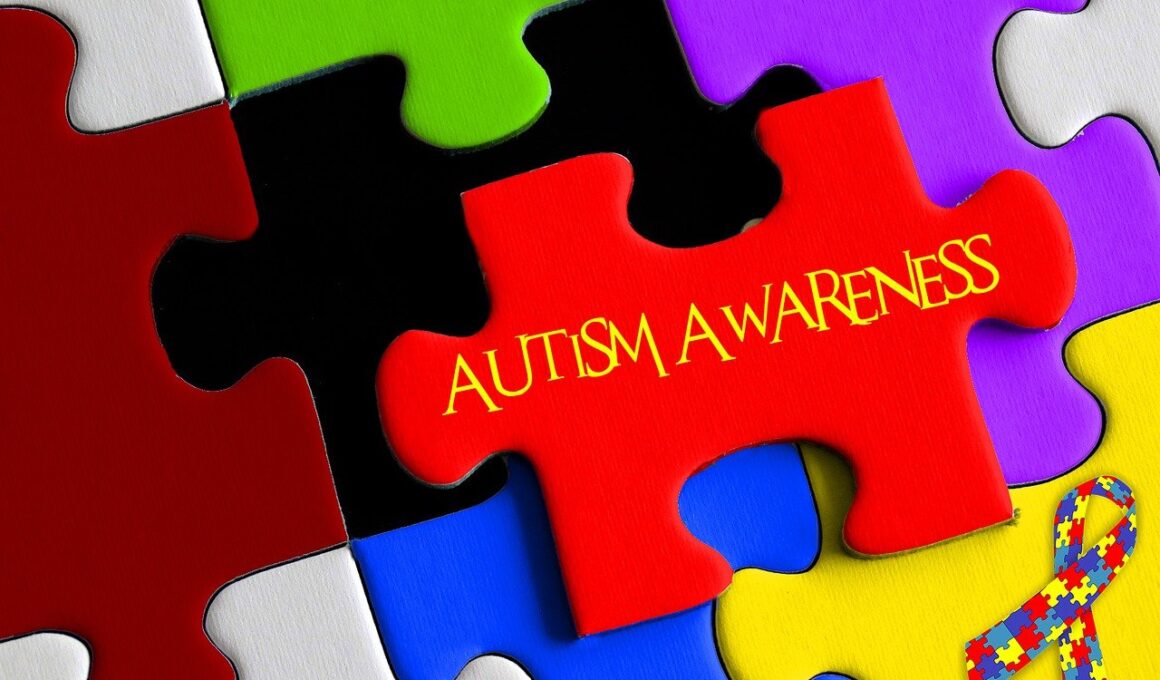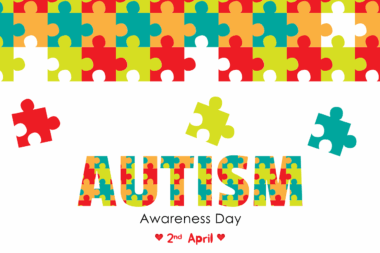The Connection Between Mental Health and Eating Disorders
The relationship between mental health and eating disorders is both complex and profound. Various studies indicate that individuals with eating disorders often experience underlying mental health issues. Conditions such as anxiety, depression, and others frequently co-occur, exacerbating the challenges of recovery. Understanding these connections is crucial for effective treatment and support, as it helps guide interventions to address both mental health and eating behaviors concurrently. When mental health is neglected, patients may struggle to overcome their eating concerns. Addressing the psychological factors can significantly improve the likelihood of recovery, leading to healthier eating habits. An integrated approach that encompasses both mental wellness and nutritional guidance can enhance outcomes for patients. Awareness events play a vital role in educating the public about this link and reducing stigma. They foster conversations surrounding mental health and invite collaboration from healthcare professionals. Engaging with communities provides necessary resources and encourages others to seek help. Awareness is crucial for early detection and prevention, allowing individuals to address issues before they escalate. Ultimately, understanding this vital connection aids in shaping a supportive environment for individuals experiencing eating disorders.
Eating disorders, such as anorexia nervosa, bulimia nervosa, and binge eating disorder, are often symptoms of mental illness rather than mere dietary choices. The path to recovery requires acknowledging these disorders as serious medical conditions. Many people do not realize how deeply intertwined mental health issues can affect eating behaviors. It is crucial to educate society about this important connection. Public events can help raise awareness and empower those struggling with eating disorders. Here are key aspects that these events typically address:
- Understanding Symptoms: Recognizing the warning signs of eating disorders is vital for early intervention.
- Support Networks: Building a support network can provide individuals with the encouragement they need to recover.
- Resource Accessibility: Making resources available can empower communities to seek help for themselves and others.
- Encouraging Open Dialogue: Creating a safe space for discussions can destigmatize mental health issues.
Through consistent engagement and education, communities can better understand how crucial mental health care is in treating these disorders.
Many awareness events focus not only on prevention but also on providing necessary tools for coping strategies. Workshops, discussions, and informational booths can help attendees gain insight into constructive approaches for managing mental health and eating disorders. Among the resources highlighted, therapy options, support groups, and nutrition information can significantly impact recovery. Participants often learn about new therapeutic methodologies that meld traditional counseling with nutritional counseling. Understanding this synergy can aid caregivers and practitioners in offering holistic support. It is also essential to highlight the success stories as they can inspire hope among those who may feel trapped by their conditions. Highlighting stories of recovery gives a relatable viewpoint that can resonate with others, reaffirming the message that recovery is possible. In addition, there is a growing need for collaboration among health professionals, educators, and community leaders at these awareness events to foster a united front against eating disorders. Sharing expertise and gaining fresh insights can lead to better methods for prevention, treatment, and recovery. By doing so, society can build a strong foundation of support for those facing these debilitating challenges.
The Role of Education in Prevention and Awareness
Education stands as one of the most powerful tools in combating the prevalence of eating disorders. Awareness events typically feature educational segments aimed at informing attendees about the factors contributing to these conditions. Participants learn how media, societal expectations, and personal experiences can significantly influence body image and self-perception. Educational efforts empower individuals to cultivate a healthy relationship with food and their bodies, which is essential for prevention. Schools often include eating disorder education in health curriculum, which can enable early interventions. By fostering an environment where students understand mental well-being, they can recognize warning signs—whether in themselves or their peers. Sessions may include interactive activities aimed at building empathy, equipping students with tools to provide support. Additionally, awareness events often look into cultural factors and how they may affect eating habits. Providing a multicultural understanding can lead to a more inclusive dialogue regarding body image issues. Education not only empowers individuals but also creates allies in the fight against stigma. Those exposed to educational resources are likely to become advocates, encouraging open conversations about mental health concerns. Thus, education plays a pivotal role in fostering healthier communities.
Community involvement is essential for the success of eating disorder awareness events. Local organizations often collaborate to create initiatives aimed at providing resources, support, and guidance. The sharing of expertise among various professionals ensures a comprehensive approach to the issue. Events frequently feature speakers sharing their experiences or professionals discussing treatment options. Participants receive invaluable information about available resources and how to access them. Such events invite various stakeholders, including health workers, educators, and families, to partake in creating a supportive network. Bringing together different perspectives allows for the development of collaborative strategies that tackle eating disorders from multiple angles. Furthermore, communitywide participation strengthens the message that combating these disorders requires collective action. By emphasizing shared responsibility, attendees might foster a sense of belonging and accountability. When individuals feel empowered within their communities, they are more likely to seek help and support others. The communal approach can dismantle barriers to treatment and encourage dialogue. Overall, active community participation is vital in promoting understanding and reducing stigma surrounding eating disorders, creating an environment conducive to healing.
Challenges Faced in Raising Awareness
Despite the importance of awareness events, challenges persist in effectively promoting the connection between mental health and eating disorders. Stigma remains one of the significant barriers preventing individuals from seeking help. Many people still hesitate to disclose their struggles due to fear of judgment or misunderstanding. This leads to underreporting and further complicates recovery for those in need. Additionally, misconceptions regarding eating disorders contribute to this challenge, with a lack of awareness leading to misguided beliefs. Addressing these misconceptions is fundamental to altering public perceptions. Events often strive to engage in clear communication by providing accurate information. Overcoming resistance in discussing mental health openly remains a critical hurdle as well. Some individuals may refuse to acknowledge their mental health struggles, viewing them as a sign of weakness. This mindset hinders both awareness and recovery efforts. To counteract these challenges, it becomes essential for advocates to remain transparent about the complexities of mental health and eating disorders. Creatively employing outreach strategies can help reach broader audiences, breaking down barriers and encouraging participation. By fostering a supportive environment, the conversation can shift towards understanding and compassion instead of stigma.
Overall, awareness events surrounding the connection between mental health and eating disorders play a vital role in promoting understanding and treatment options. These events educate attendees, foster communication, and motivate individuals to seek help when needed. Through collaboration with health professionals, educators, and community members, the message becomes clearer: addressing mental health is fundamental in overcoming eating disorders. Continuous dialogue about these issues is essential if we are to reduce stigma and improve outcomes. Furthermore, the synergistic effect of mental health and nutritional interventions becomes even more evident through awareness initiatives. By coming together as a community, we can create an inclusive environment that supports individuals battling these challenges. The initiatives taken today lay the groundwork for healthier tomorrows. As awareness grows, so will understanding and compassion, leading to stronger support networks and more successful recovery stories. Everyone has a role in this ongoing journey, whether advocating for awareness or simply being a supportive friend. Ultimately, when mental health is prioritized, it will pave the way for achieving better overall health. The pursuit of well-being remains our shared mission, urging us all to stand together against eating disorders.
In conclusion, the connection between mental health and eating disorders underscores the significance of awareness events. These gatherings not only shed light on the challenges but also promote healing and understanding. By enhancing public knowledge and awareness of this vital link, we can pave the way for more inclusive and compassionate support networks. Recognizing that recovery involves addressing both eating behaviors and underlying mental health issues is fundamental for long-term success. Ongoing efforts to challenge stigma related to mental health will continue to be essential as we move forward. By sharing experiences and fostering open discussions, we create the foundation needed for transformative change. Support from community leaders, families, and health professionals will be integral in continuing these efforts. Moving forward, we encourage everyone to participate in awareness events and advocate for improvements in mental health care. Collectively, we have the ability to instigate meaningful conversations that promote understanding across diverse backgrounds. Through this meaningful collaboration, we will not only raise awareness but also inspire hope among those affected by eating disorders. Our united vision is towards a healthier future, where individuals confidently seek support and receive the care they truly deserve.





